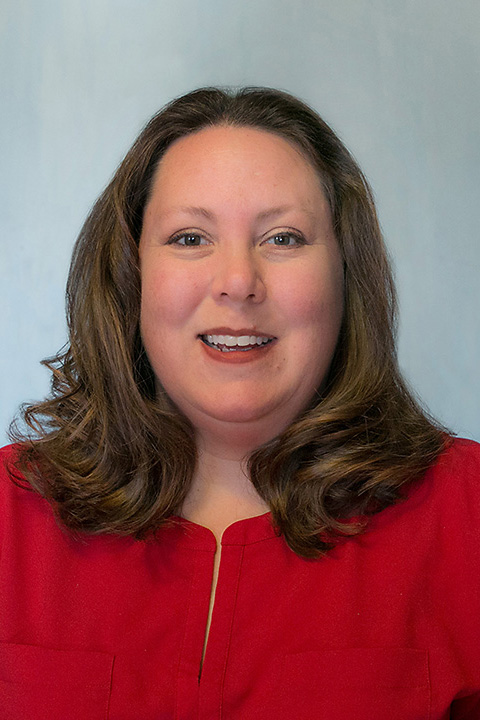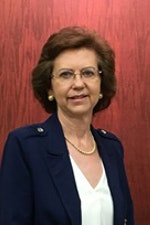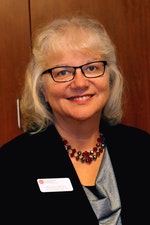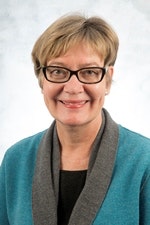MCN Talks is a bi-monthly series designed to give voice to different members of MCN community. Twice a month, faculty, students, and staff are asked questions related to healthcare, education, or life in the nursing program at ISU.
[MCN] What do you see as the biggest opportunity for nurses?
MCN Director for Undergraduate Programs Valerie Wright: Nurses have the ability to influence people to change, and I think we have a unique ability to teach our students how to influence people. It does not take a master’s degree or a doctoral degree to teach somebody proper eating or exercise, but you have to influence them to want it. That is where we are falling short.
MCN Success Plan Coordinator Becky LaMont: MCN’s America’s Promise integration…. The program is teaching the leadership skills necessary to take public health initiatives and drive them forward.
Associate Dean for Academics Denise Wilson: In addition to my role as educator, I’m also a nurse practitioner. I see the opportunities [that nurses have] to try to improve the general health of our population. So often, we think of nursing as ‘taking care of people in hospitals,’ but as nurses, we have this huge opportunity to reach people before that and give them the education that they need to have in order to be healthy. At MCN, we educate our nurse practitioners to provide primary care in a preventative way, so they can keep people healthy for as long as possible. I think, really, that education piece, to try to keep people healthy, is a big opportunity for our nurses.
As a society, we spend a huge amount of resources, whether that’s human resources or money resources, on the care of people in hospitals. If we can keep them healthier and keep them out of the hospitals, that’s going to have a huge impact on that expenditure of healthcare dollars. Because there’s only so much to go around.
Coordinator of the Nursing Simulation Laboratory Marcia Buchs: From my personal perspective of having worked as a nurse 40 years now in at least 10 different capacities, I believe the biggest opportunity for all nurses is the broad diversity of ways that a nursing degree can be used to find satisfying and meaningful work throughout a nurse’s lifespan. Nursing is definitely a profession where it is truly possible to dream big and broad!
Faculty member Brenda Johnson: I think that the aging population is often presented as a challenge. And it is a challenge because, often times, healthcare is not designed to care for a chronically ill aging population. But the needs and the opportunities for caring for that population are very much in the realm of nursing. So, I think that the challenge is the opportunity – nurses can be the leader in improving the quality of care and providing the caregiving needs for this mushrooming population. In the next 30 years, the generation of students that we are preparing now will be, throughout their entire career, seeing this sea change in needs and population growth.
[MCN] What do you see as the biggest challenge for nurses?
Wright: We have to focus on wellness prevention, and we are so far away from that. As an industry, we do not do enough education or promotion of nutrition or exercise. It’s just, ‘take this pill… take that pill,’ and all of the sudden, the person needs 20 pills. Nurses have a unique opportunity to change the culture of our healthcare industry in promoting health and wellness.
LaMont: Nurses are aging out. Which means it is a good time to be a nurse, because hiring is vibrant, but there is a high need for nursing. Specifically, community based nursing and high-end critical care.
Wilson: There are so many. One challenge, of course, is the need and requirement to stay up to date. We talk about our students being ‘life-long learners,’ and that really is something that we have to do as nurses. Clinical guidelines change all the time, new treatments are out there, medications, just all sorts of things. So, we have to stay up to date on that.
Another challenge, to the industry as a whole, is taking advantage of the strengths of the various roles of people in healthcare. With that, the ability and willingness for people to work together for the common goal: the patient’s optimal health. In some places, there is a concern of whether nurse practitioners should be primary care providers. In reality, a good part of what a physician is able to do, a nurse practitioner can do as well. So, rather than competing for taking care of the patients, the challenge is for people to work together to care for those patients.
There are quite a few states in the nation that now allow independent practice by nurse practitioners. Not in every state, but it’s coming around. Again, it’s not that nurse practitioners are trying to ‘steal’ patients from physicians. There are some places in the United States where there are major physician shortages. Who is there taking care of the patients? The nurse practitioners. It doesn’t matter whether it’s Appalachia or if it’s Fifth Avenue in New York. I believe people can coexist as providers and give the opportunity to patients to see the provider that they want to see and get the care that they want.
Buchs: I work with senior nursing students that are workers here in the Nursing Simulation Lab. When they graduate, I get feedback from them, and, of course, I also talk with nurses my age who have been in the nursing profession for years and years. I think one of the biggest challenges for nursing is keeping experienced nurses in the acute care setting. One of our local hospitals recently reported that the majority of new grads work in the acute setting for two years or less and then find other settings that better meet their personal needs. When the hospitals went to primarily 12 hour shifts, some older nurses I know moved to settings with shorter hours because they physically struggled to be on their feet 13-14 hours a day—which a 12-hour shift turns into—sometimes several days in a row. And the night shift has been the bane of many a new nurse and older nurses too.
For the new grads, another thing that sometimes drives them out of the hospital is the high acuity of patients now. Only very sick patients stay in the hospital, and they turn rapidly. When I was a new grad in 1978 on an orthopedic floor, we had folks in traction for a month, and total hips were with us for two weeks. The majority of our patients were stable and we really had a chance to get to know them and their needs. Now, I hear nurses talk about how many admissions and discharges they do in a day because patients are in and out so fast. In a profession that draws people because they care, if their work time does not allow for quality patient interaction, it is a forgone conclusion that they will seek a position where they do have time to interact. I don’t know the answer, but I do see one of the biggest challenges for nursing leaders is to provide work environments that keep experienced nurses at the acute care bedside.
Johnson: I do believe for nurses to fully actualize the opportunity and to be a leader in healthcare, we need to do a better job, and we need to work within the system to recognize the experience that nurses have. We [nurses] have never really been recognized monetarily for our work. Study after study will show that a graduate nurse—a nurse practitioner, a clinical nurse specialist—saves money, even giving twenty-four-hour care.
I think that, as long as nurses are invisible to the public—the public can’t choose their own nurse based upon that particular person’s credentials, experience, and qualifications—it’s difficult for nurses to be really seen for who they are. It would be nice if you could say “I choose to be hospitalized on this unit because this is the nurse who I want to take care of me and be my primary caregiver,” and we don’t have that. I think that we have to be a double-edged attack on this if we are going to fully actualize our potential.
About Us |
|
 |
Valerie Wright – Director for Undergraduate Programs |
 |
Becky LaMont – Success Plan Coordinator |
 |
Denise Wilson – Associate Dean for Academics |
 |
Marcia Buchs – Coordinator of the Nursing Simulation Lab |
 |
Brenda Johnson – Faculty |
MCN is providing leadership in nursing—Learn more.
Our undergraduate programs
Our graduate programs


Nursing job is indeed very challenging. But we have to look at the opportunities available behind those challenges.
best doctors San Antonio TX